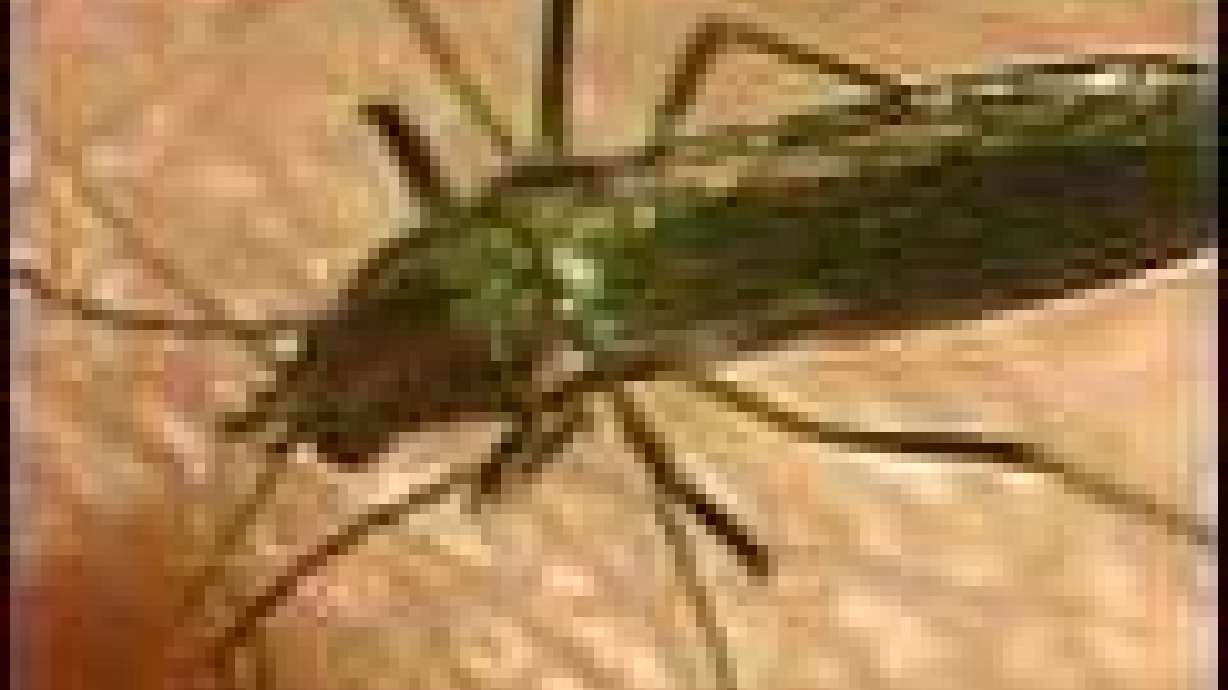Estimated read time: 2-3 minutes
This archived news story is available only for your personal, non-commercial use. Information in the story may be outdated or superseded by additional information. Reading or replaying the story in its archived form does not constitute a republication of the story.
Ed Yeates ReportingUtah and Colorado researchers are looking for West Nile virus survivors to see why some people get really sick while others don't. It's the first study of its kind.
A mosquito bites a bird infected with West Nile, then bites a human, passing the virus onto its next host. Infectious disease researchers know the mechanism, but what they don't know is why some people like Cid Garcia in Tremonton was hospitalized with life threatening complications.
Cid Garcia: “I felt like a ton of bricks just fell on me.”
While others like Adam Jensen, bitten near his family home in Corrine, thought he just had a bad cold.
Adam Jensen: “I had a high fever, nausea, a really stiff neck.”
Still, others have no symptoms at all.
That's why doctors Michael Bamshad, Barry Beaty and John Kriesel from the University of Utah and Colorado State University are collaborating for this first ever five-year national study.
John Kriesel, M.D., U of U Division of Infectious Diseases: "Dr. Bamshad has identified some genes and is in the process of identifying genes that are subject to natural selection and he thinks that may be a marker for infectious disease pressure in these genes."
If true, if proven, that marker might lead to the development of new drugs that could target these genes under pressure, known to predispose people to infections.
John Kriesel: "Or it may lead us to different vaccination strategies, for instance, vaccinating only those people that we think will be subject to severe infections."
University of Utah researchers are looking for 200 to 300 people who had severe attacks of West Nile and another 500 to 600 who had only mild cases of the illness. People will have to give up blood samples, but they don't have to come to Utah to participate.
Those, who want to take in this unique study should call the University of Utah at 801-585- 9495.








